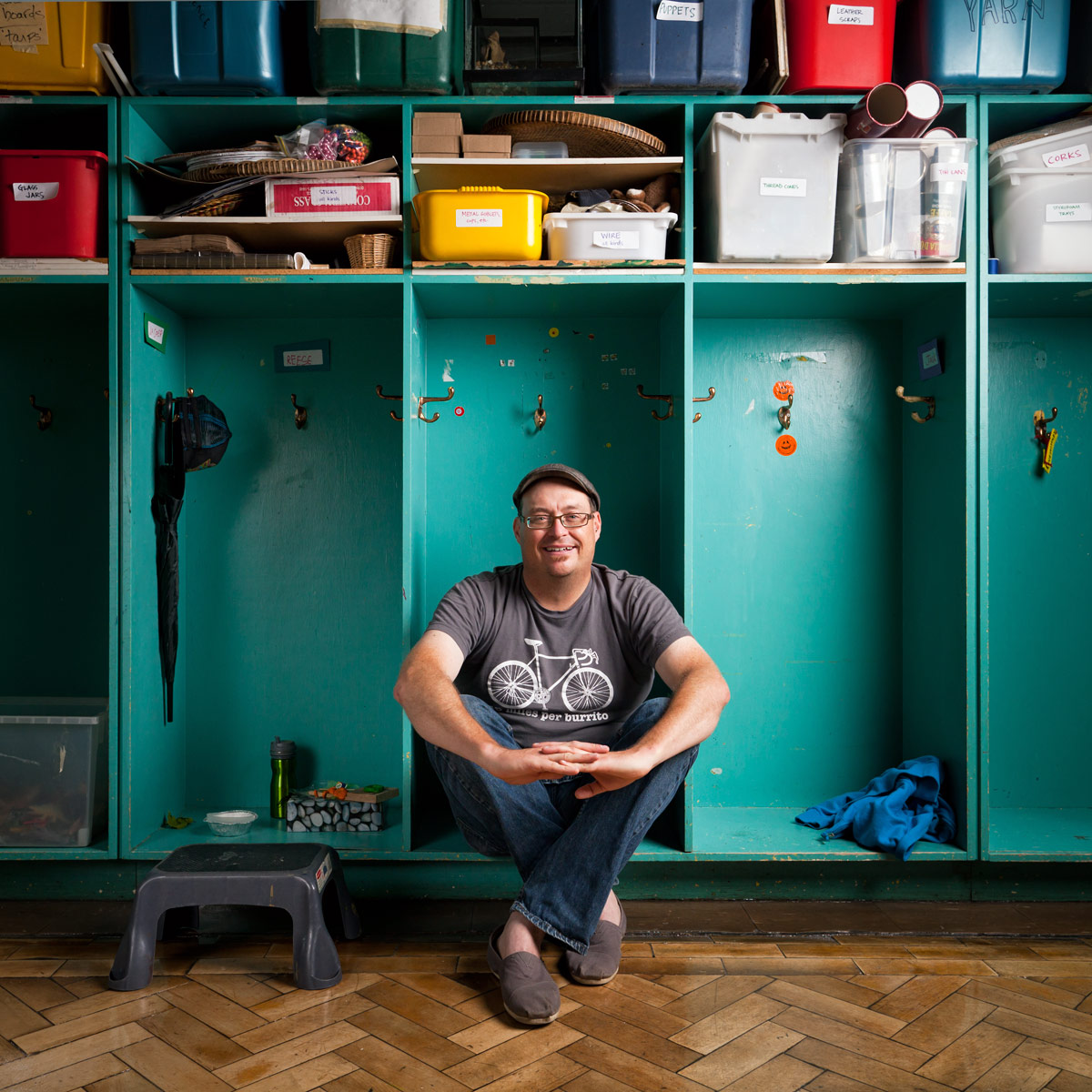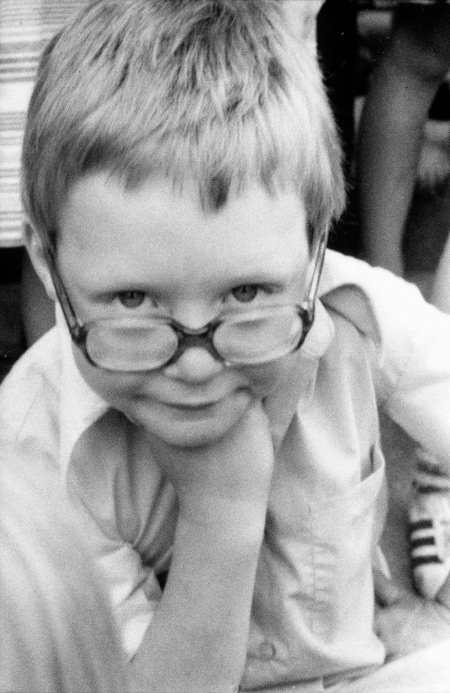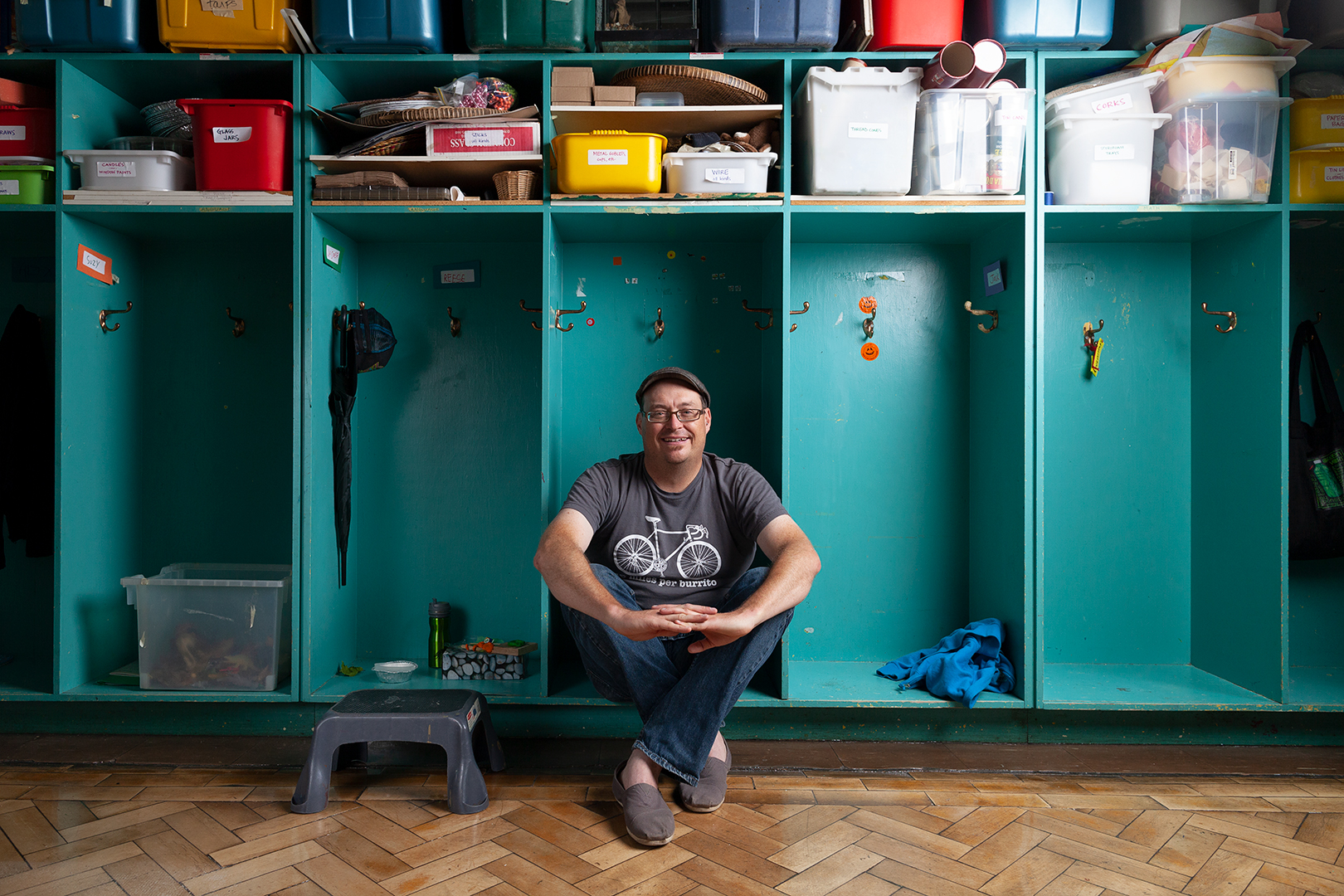“There is a certain self-denial of authority and the responsibility of adults to set limits for children in the way that ALPHA used ‘direct democracy’. It’s a tough one: in order to teach me that I had agency, I was given some agency even though it was largely illusory.”

One formative Alpha Alternative School experience I remember was making lunch with Barbara Klunder to sell to the rest of the school, as part of a regular activity called ‘store’. The lunch itself was easy. But Barbara—a parent—made it not into a cooking lesson but a navigating the world lesson. A handful of us decided as a group what to make for lunch—I think it was ants on a log and milk or something like that. Then we all—probably five 6-to-8 year-olds—walked down Queen Street to a little market and decided as a group who would buy what item. Barbara gave us each some cash, and we each went in on our own and found our item on our own and paid for it on our own, and then came back out and counted change with Barbara—I remember her being nice to me about my fear of the stern shopkeeper—then walked back to ALPHA. We added up how much we had spent, tried to figure out how many “orders” it would make, and then (with Barbara’s help) figured out what to charge for each order. Then we made the food, sold it from a little table in front of the kitchen at lunch, counted what we had made, and compared that to what we had spent.
This was an hours-long focused project–for six-year-olds. The main thing I got out of it was more confidence in dealing with shops and counting my change but more importantly I remember the sense of ownership I had over those little ants on the log.
I also have so many memories. When we broke into the wine boxes on an all school camping trip. When I brought a watergun to school from my summer on Fire Island shaped like an erect penis with the balls as handle. When I was refusing to learn to tie my shoes at seven years old because that was what Velcro was for. When I first learned to spell and went around typing/writing “You are a pig!” on everything I could. There was a real sense of accountability and concern and a lot of asking for my thoughts and opinions. It felt loving in a way because my teachers really knew me. My parents, from volunteering at the school, knew the issues and the teachers and the processes.
But that’s also an example of the kind of deep coercion that was happening—I really felt like I had a say in whether I learned to handwrite or tie my shoes or do long division… or for that matter to make the rules at school… except you couldn’t change the no-running rule. But there were a million things you also couldn’t change. It was an illusion that we “ran” the school by democratic process. The issues we could address were, in retrospect, narrowly defined. We didn’t pick the hours of the school day or the educational model or hire/fire the teachers or for that matter even do the serious cleaning (thanks John the Janitor.) In the end, there was no way my parents and teachers were going to let me not learn to handwrite or tie my shoes, but they made it seem as if I had a voice because they as adults could maneuver me through subtler uses of their power, to make me believe I was making decisions for myself. As a parent, I can feel the allure of listening and giving your kids a voice, but in the end it’s my house, my rules. There is a certain self-denial of authority and the responsibility of adults to set limits for children in the way that ALPHA used ‘direct democracy’. It’s a tough one: in order to teach me that I had agency, I was given some agency even though it was largely illusory.
The school welcomed my dad, an out gay activist, without a hiccup as far as I know. Even in San Francisco in the public schools in the Castro today, that’s not something that consistently happens. What a surprising and rare gift to a parent who didn’t have to fight to spend time with the kids helping us do musicals; to a kid who wasn’t shamed or stigmatized; and to a family that was already under extra strain from homophobia.
Finally I would say that I was allowed to spend months one year doing nothing but reading Isaac Asimov books on science. I learned how to mill wheat for apple pies which I also learned to make. I explored burned out warehouses near the CN tower over extra long lunches and didn’t get in trouble, and learned to love urban decay. I kissed the boys in kissy tag and the teachers didn’t interfere—although the kids were super heteronormative about that. I got to be in a musical with my dad about cryogenics. I learned early how I was privileged by hanging out with my ALPHA friends who lived on Ward’s Island and in Parkdale: both had single poor moms and creatively scrounged for food during the day and after school with no money. I learned about disability from Doug, punk from Max, naked ladies from the paintings in the Leonards’ loft—where I also heard Pink Floyd’s The Wall for the first time. I spent hours of school time, at my leisure, making a working replica of the functions of the ear. I never had homework. I never took a test. I never got a grade or a report card or was pitted against my peers. I got to be interested in things and was given the time and resources to learn more. We were so spoiled in such rich ways.
— Stefan Lynch Strassfeld
Colour photo by Michael Barker
Black and white photo by F. Robert Openshaw
Text and Interview by Ariel Fielding

Stefan Lynch Strassfeld
- ALPHA 1977–1984
- ages 5–12
- Ran an international organization for kids of LGBTQ parents.
- Studied Nursing at University of California, San Francisco.
- Works as the director of the health clinic at Juvenile Hall, San Francisco.
